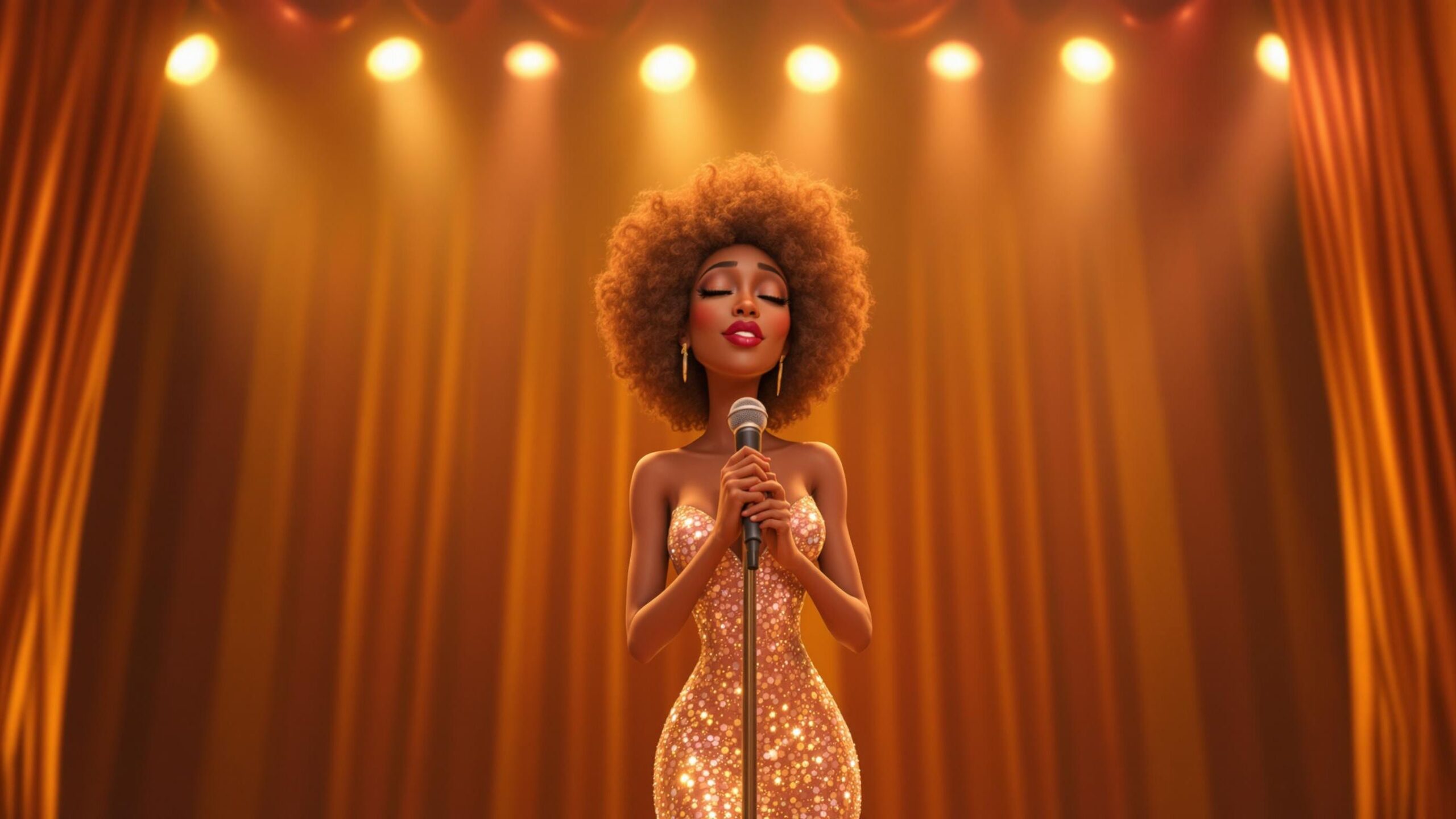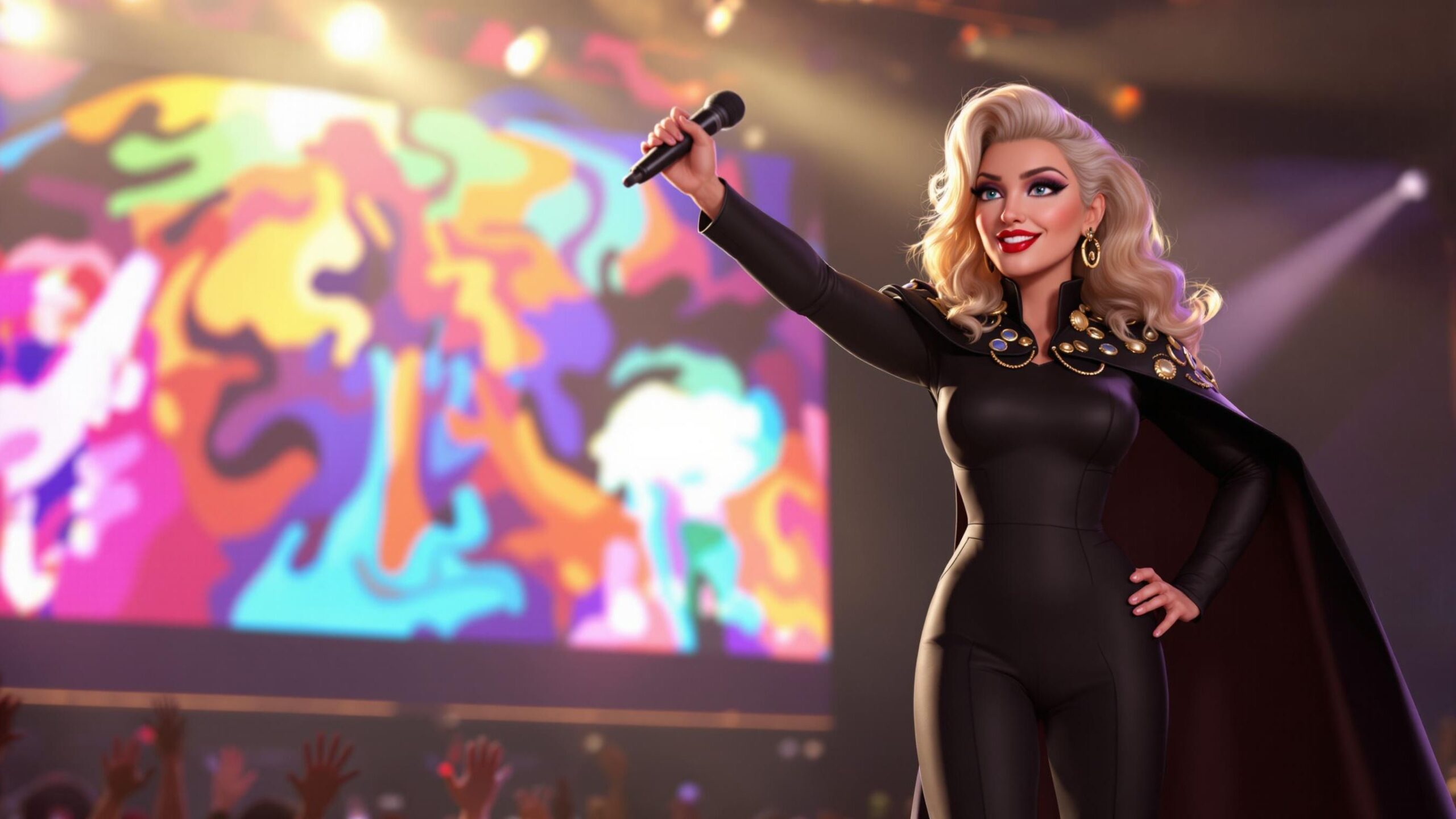From the very beginning, Whitney Houston seemed fated for greatness. Born on August 9, 1963, in Newark, New Jersey, she was surrounded by music royalty. Her mother, Cissy Houston, was a renowned gospel and soul singer. Her cousin, Dionne Warwick, had already made her mark on American pop. And Aretha Franklin—the Queen of Soul herself—was a close family friend and mentor. Whitney’s roots were steeped in soul, gospel, and emotional expression. By the time she was a teenager, it was clear that her voice wasn’t just remarkable—it was otherworldly. What followed was not just a career. It was a cultural phenomenon.
Breaking Through: A Voice That Stopped the World
Whitney’s rise to stardom was meteoric. In 1985, she released her self-titled debut album, Whitney Houston, which would go on to sell over 25 million copies worldwide. Her first hits—“You Give Good Love,” “Saving All My Love for You,” and “How Will I Know”—introduced the world to a singer who could infuse pop melodies with gospel passion and precision. Her voice was clear, powerful, and packed with emotion. And her image? Fresh-faced, elegant, and radiant. But it wasn’t just her beauty or her vocal acrobatics that captivated audiences—it was the soul behind every note. Whitney could belt a high note with jaw-dropping force, then caress a lyric so tenderly it made you feel like she was singing just to you. Her music was universal, her appeal undeniable. She became the first woman in music history to debut at No. 1 on the Billboard 200 with her second album, Whitney (1987), solidifying her as a bona fide superstar.
The Queen of the Crossover: Pop, R&B, and Beyond
What made Whitney Houston’s impact so seismic was her ability to transcend genre and demographic. She was one of the first Black female artists to receive heavy rotation on MTV, breaking through racial barriers with both elegance and raw talent. Her music blended R&B, pop, gospel, and adult contemporary in a way that brought audiences together. Hits like “I Wanna Dance with Somebody (Who Loves Me)” and “So Emotional” lit up dance floors, while ballads like “Where Do Broken Hearts Go” and “Didn’t We Almost Have It All” showcased the emotional depth of her vocal range. With each performance, she redefined what a female vocalist could sound like—and what success looked like. She wasn’t just accepted by mainstream pop culture. She was the mainstream.
The Bodyguard Era: Global Superstardom and Cultural Icon
If Whitney Houston had already conquered the music charts, her role in The Bodyguard (1992) made her a household name across the globe. Paired with Kevin Costner, the romantic thriller became a box-office smash—but it was the music that turned the film into a phenomenon. The soundtrack, led by Whitney’s earth-shaking cover of Dolly Parton’s “I Will Always Love You,” became one of the best-selling albums of all time. The song itself was a vocal tour de force—starting as a whisper and crescendoing into one of the most iconic key changes in pop music history. “I Will Always Love You” topped the Billboard Hot 100 for a then-record 14 weeks and won numerous awards, including a Grammy for Record of the Year. At the height of her fame, Whitney was more than a singer or actress—she was an institution. She had the voice, the look, the charisma, and the command to make every performance unforgettable.
Trials and Tribulations: The Human Behind the Legend
While Whitney’s professional life was golden, her personal life was far more complex. Her tumultuous marriage to fellow singer Bobby Brown became tabloid fodder. Rumors swirled about substance abuse, missed performances, and erratic behavior. In interviews, Whitney revealed the pressures she faced as a global icon—especially as a Black woman navigating both pop superstardom and media scrutiny. She was often misunderstood, mischaracterized, and relentlessly judged. Yet even in her struggles, her voice remained a beacon of brilliance. Her 1998 comeback album, My Love Is Your Love, reminded the world that Whitney wasn’t just a relic of the ’80s and ’90s—she was still relevant. Songs like “It’s Not Right but It’s Okay” and “Heartbreak Hotel” showed her ability to adapt and evolve with contemporary R&B. Her resilience, even when faltering, was part of what made her legacy so human—and so inspiring.
The Voice That Inspired Generations
Whitney Houston’s influence extends far beyond her discography. Her vocal techniques—melisma, phrasing, dynamic range—have become the blueprint for countless artists, from Mariah Carey and Beyoncé to Ariana Grande and Jennifer Hudson. She set the gold standard for singing competitions like American Idol and The Voice, where her songs are often used as the ultimate vocal test. But Whitney wasn’t just admired—she was felt. Her ability to move listeners emotionally set her apart. Whether singing the national anthem at Super Bowl XXV with unparalleled pride and control, or leading a gospel choir in “I Go to the Rock,” she proved that performance could be spiritual, emotional, and transcendent. She also paved the way for future artists of color to dominate mainstream pop, creating space that hadn’t existed before.
Final Days and a Lasting Farewell
In the 2000s, Whitney continued to work on music and reconnect with her fans. Her 2009 album, I Look to You, was a quiet, emotional return to form. While her voice had changed, her sincerity and soul remained unmistakable. She embarked on a world tour and was gearing up for more work in film and music. But tragedy struck on February 11, 2012, when Whitney Houston was found unresponsive in a Beverly Hills hotel room, just before a planned appearance at a pre-Grammy party. Her death at age 48 shocked the world. Tributes poured in from celebrities, fans, and world leaders alike. At her funeral, Aretha Franklin, Stevie Wonder, and others honored not just a performer, but a person who had given so much joy to so many. Her passing was heartbreaking—but her presence had been monumental.
The Voice That Will Never Be Silenced
Whitney Houston wasn’t just the voice of a generation—she was the soul of it. Her songs told stories of love, hope, heartbreak, and resilience. Her vocal talent was unmatched, her stage presence undeniable, and her legacy eternal. She opened doors, broke barriers, and left an indelible mark on music and culture. Even now, her songs echo in weddings, award shows, karaoke nights, and quiet moments of reflection. Each note she sang still carries the weight of emotion and brilliance. Whitney may be gone, but her voice—that voice—continues to inspire, uplift, and remind us of what greatness sounds like. Long live the Queen of the Power Ballad. Long live Whitney Houston.




